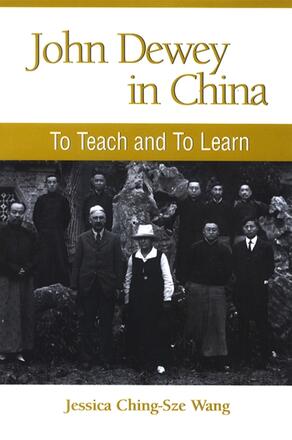
John Dewey in China
To Teach and to Learn
Alternative formats available from:
Shows how John Dewey’s visit to China from 1919 to 1921 influenced his social and political thought.
Description
Combining biography with philosophy, this book explores John Dewey's two-year trip to China (1919–1921) and its legacy for him as a teacher and a learner. Jessica Ching-Sze Wang looks at how Dewey was received in China, what he learned, and how he was changed as a result. She examines the intriguing dynamics shaping China's reactions to Dewey and Dewey's interpretations of China, and details the evolving process in which Dewey came to understand China on its own terms, rather than from Eurocentric perspectives. Tracing China's influence on Dewey, Wang considers how his visit contributed to the subsequent development of his social and political philosophy. China provided a unique vantage point for Dewey to observe international politics, which led him to reconsider the meaning of internationalism. Also, his exposure to Chinese communal culture enabled him to reject the Western preoccupation with democracy in politics and to emphasize democracy as all-encompassing culture. Finally, Wang discusses how Dewey's own observations and appraisals of Chinese society can give credence to the notion of Confucian democracy for China.
Jessica Ching-Sze Wang is Assistant Professor of Education and Philosophy at National Chiayi University in Taiwan.
Reviews
"[John Dewey in China] provides a detailed historical and philosophical perspective on the content and consequences of Dewey's visit to China. It is worthwhile reading for scholars who are interested in the real-world applications of Dewey's philosophy, Chinese intellectual history in the early 20th century, or the way in which democracy has been understood and interpreted in different cultural contexts. " — China Quarterly
"The author pays careful attention to the details of the reception and influence of John Dewey's lectures in China and to the political, social, and personal contexts that shaped China's reaction to Dewey and Dewey's reaction to China. There is no book as complete as this one for treating what Dewey taught and learned in China. " — Richard Shusterman, author of Practicing Philosophy: Pragmatism and the Philosophical Life